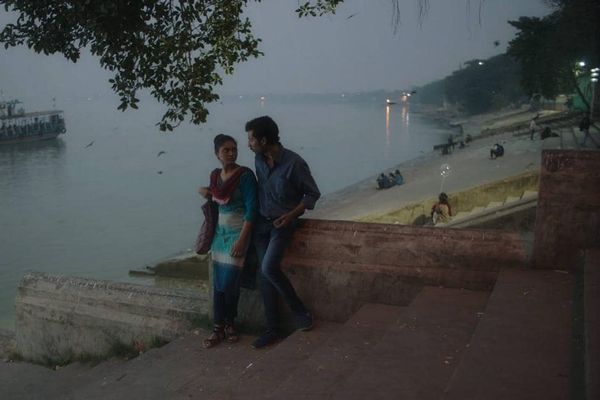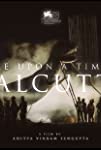Eye For Film >> Movies >> Once Upon A Time In Calcutta (2021) Film Review
Once Upon A Time In Calcutta
Reviewed by: Mateusz Tarwacki

Human life can be as nuanced as the layout of a big city. A city that changes day by day without even giving one a chance to discover all its secrets. And just as getting to know all the nooks and crannies of a bustling and dynamically changing city requires mindfulness and patience, Aditya Vikram Sengupta develops portraits of the heroes of his latest film, Once Upon A Time In Calcutta, using similar awareness.
Ela's (Sreelekh Mitra) biography has been marked by tragic events. The former TV actress broods over the deaths of her mother and daughter in solitude, trying to find a way to start a new life. But disagreement with the past keeps the wronged woman in a state of grief and mourning that prevents her from making good life choices. The complicated exposition of the heroine continues throughout the film, revealing new details like a puzzle – the relationship with her ex-husband, Shishir (Satrajit Sarkar), who finds consolation in friendship with his loyal German shepherd, or with her stepbrother, Bubu (Bratya Basu), isolated from the world. Ela's fate is also connected with the young, dream-filled Raja (Shayak Roy), whom she helped arrange a job at a chit fund company she is the face of.
Although Ela's story undoubtedly forms the axis of the film, the importance of the other characters is not any less – they are like smaller streets diverging from a larger avenue, but still intriguing and eye-catching. The problem is that reading a map of this scale is time-consuming, and the pace at which the Indian director guides the narrative forward is at times more like a traffic jam than a refreshing evening stroll.
However, one cannot deny the creator a few exquisite, subtle narrative solutions – the seemingly random items in Once Upon A Time In Calcutta play an important role in the character's exposition. It is no coincidence that the heroine drinks whiskey in one of the first scenes. The alcohol triggers a reaction full of nostalgia and longing. It is part of a small daily ritual she plays with her husband. Shishir turns empty bottles into full ones, so that her favourite drink is waiting for Ela. The impassable distance of the former marriage is also emphasised in a scene of handing over house keys – through a third person, even though it was enough to take one step to hand over the keys in person.
Sengupta has created a colourful, multi-layered and rich work that can be read in many ways, despite its flaws. Whether it will be a story about the overwhelmingly rapid change in architectural and social image of Calcutta, whether it will be a story about reconciliation with oneself, or a treatise on loneliness – it is up to the viewer how to read this map.
Reviewed on: 26 Sep 2021















